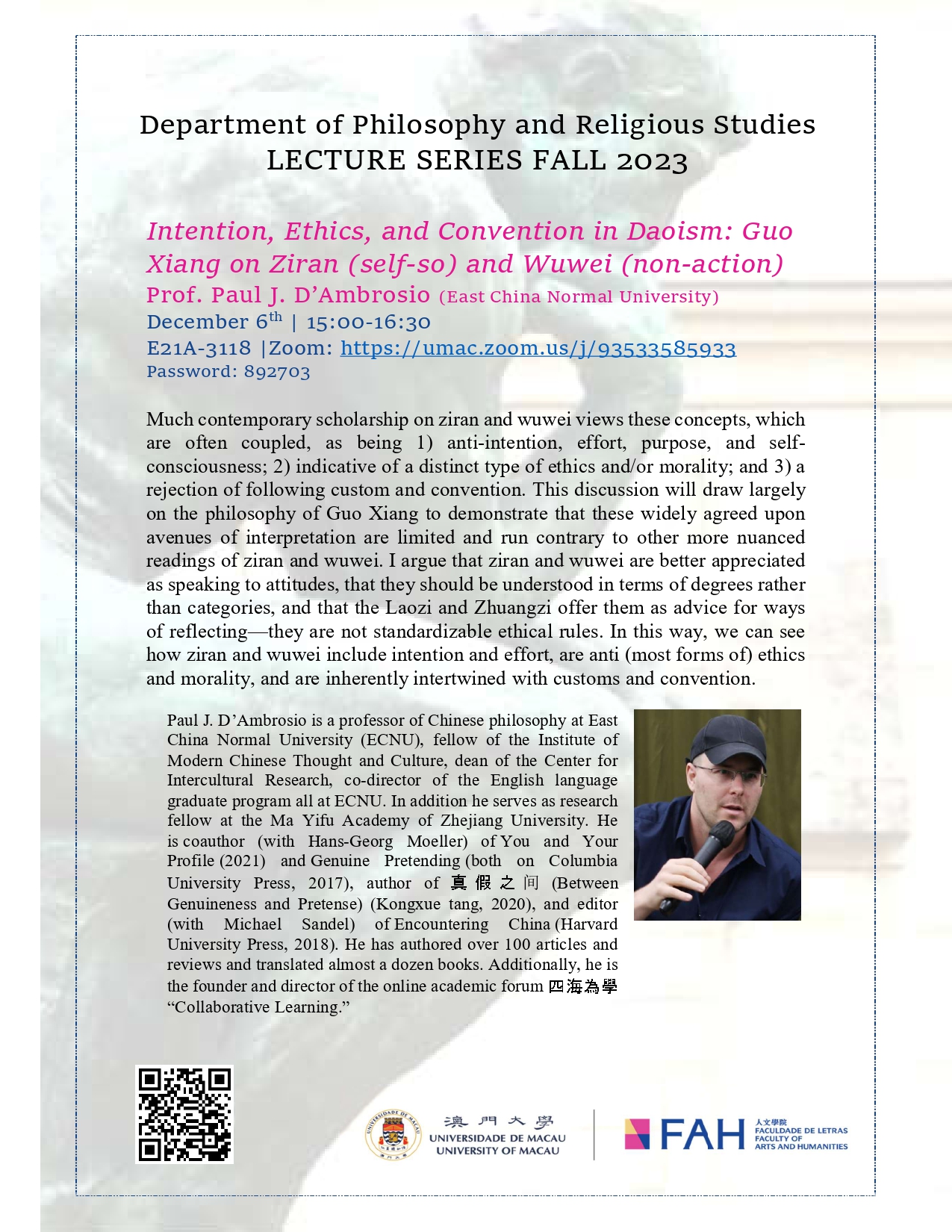

FAH/DPHIL Lecture Series – “Intention, Ethics, and Convention in Daoism: Guo Xiang on Ziran (self-so) and Wuwei (non-action)” by Prof. Paul J. D’Ambrosio, East China Normal University, China
2023-12-06 @ 3:00 pm ~ 4:30 pm
Zoom: https://umac.zoom.us/j/93533585933
Password: 892703
Abstract
Much contemporary scholarship on ziran and wuwei views these concepts, which are often coupled, as being 1) anti-intention, effort, purpose, and self-consciousness; 2) indicative of a distinct type of ethics and/or morality; and 3) a rejection of following custom and convention. This discussion will draw largely on the philosophy of Guo Xiang to demonstrate that these widely agreed upon avenues of interpretation are limited and run contrary to other more nuanced readings of ziran and wuwei. I argue that ziran and wuwei are better appreciated as speaking to attitudes, that they should be understood in terms of degrees rather than categories, and that the Laozi and Zhuangzi offer them as advice for ways of reflecting—they are not standardizable ethical rules. In this way, we can see how ziran and wuwei include intention and effort, are anti (most forms of) ethics and morality, and are inherently intertwined with customs and convention.
Bio
Paul J. D’Ambrosio is a professor of Chinese philosophy at East China Normal University (ECNU), fellow of the Institute of Modern Chinese Thought and Culture, dean of the Center for Intercultural Research, co-director of the English language graduate program all at ECNU. In addition he serves as research fellow at the Ma Yifu Academy of Zhejiang University. He is coauthor (with Hans-Georg Moeller) of You and Your Profile (2021) and Genuine Pretending (both on Columbia University Press, 2017), author of 真假之间 (Between Genuineness and Pretense) (Kongxue tang, 2020), and editor (with Michael Sandel) of Encountering China (Harvard University Press, 2018). He has authored over 100 articles and reviews and translated almost a dozen books. Additionally, he is the founder and director of the online academic forum 四海為學 “Collaborative Learning.”

